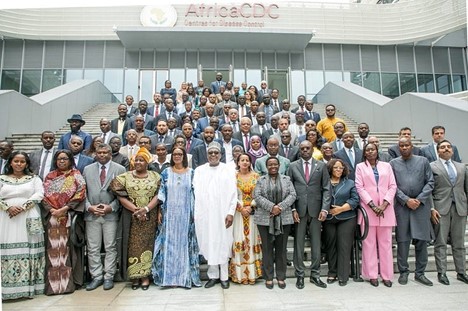By Atoyebi Nike
In a landmark moment for global health governance, the 78th World Health Assembly on May 20, 2025, adopted the Pandemic Agreement, a new international legal framework aimed at preventing a repeat of the inequities witnessed during the COVID-19 pandemic.
The agreement was approved by 194 Member States of the World Health Organization (WHO) after three years of negotiations. Its adoption was met with resounding applause, symbolizing the power of multilateral cooperation in shaping a more inclusive and effective global response to future pandemics.
However, while the agreement represents a major milestone, the most contentious issue—Article 12 on Pathogen Access and Benefit Sharing (PABS)—remains unresolved. The final terms are to be negotiated in an annex that will define how pathogens are shared and how the benefits, such as vaccines and diagnostics derived from them, are equitably distributed.
COVID-19 Lessons and the Call for Equity
The COVID-19 crisis laid bare deep global inequities, particularly in vaccine distribution. While wealthier nations secured more doses than needed, many lower-income countries, especially in Africa, were left behind—receiving vaccines late, in insufficient quantities, or not at all.
This injustice galvanized WHO Member States to establish an Intergovernmental Negotiating Body (INB) in 2021 to craft a new, binding pandemic treaty. For many African nations, the negotiations became a platform to demand that future access to pathogen samples be directly tied to guaranteed benefits.
Africa’s Coordinated Push
Led by the Africa Group of diplomats and health attachés in Geneva, and supported by the Africa CDC, African countries formed a united bloc to negotiate collectively. This unity, forged through high-level meetings in Addis Ababa and Geneva, marked a turning point in continental health diplomacy.
“The strength of our negotiating power came from speaking with one voice,” said one delegate. “We learned the hard way that collective health security must be the norm, not the exception.”
Africa’s core position: no country should be expected to share vital pathogen data without guaranteed, timely, and equitable access to the resulting medical countermeasures.
The Road Ahead
Although the overarching Pandemic Agreement has been adopted, the path to full implementation lies in finalizing the Annex to Article 12, which will spell out obligations under the PABS system. Key elements under negotiation include:
- Legal enforceability of benefit-sharing commitments
- Coverage of all pathogens with pandemic potential
- Defined timelines and access guarantees for low- and middle-income countries
- Investment in regional manufacturing of vaccines and diagnostics
African countries are calling for binding legal guarantees, not voluntary promises, and for greater investment in local manufacturing capabilities to reduce reliance on foreign supply chains.
Global Health at a Crossroads
For many, this is a second chance to address the failures of the last pandemic. The WHO agreement may set a precedent in ensuring equity is embedded in all global health responses.
As one African negotiator paraphrased Nelson Mandela: “Never again should any country be denied access to lifesaving tools because of where they are or how much they can afford.”
The Pandemic Agreement’s future hinges on global solidarity. For now, Africa has emerged not just as a participant—but as a powerful voice demanding a fairer world.
PHOTO CREDIT AFRICA CDC
